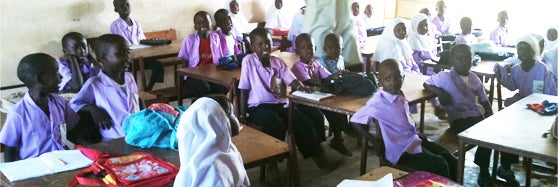 In my last blog I wrote about how empowering parents helps increase accountability in schools in rural Mexico. Although I said evidence was sparse, it is accumulating. In Africa, a number of rigorous impact evaluations are underway and starting to report findings.
In my last blog I wrote about how empowering parents helps increase accountability in schools in rural Mexico. Although I said evidence was sparse, it is accumulating. In Africa, a number of rigorous impact evaluations are underway and starting to report findings.
Once such case is in The Gambia where findings are emerging from a randomized trial, similar to other school-based management programs in which parents and teachers are given training and a small, one-time grant to develop and carry out a school development plan. This trial allows researchers to test 3 program interventions –the whole school development training and the grant; the whole school development training only; and the grant only with a control group. Preliminary analysis shows that the grant alone has no significant impact, however, when the grant is combined with the whole school development training program, it results in reductions in student (21%) and teacher (23%) absences. Although there are no significant differences in learning outcomes, on and average, communities with school management committees with higher levels of adult schooling have a positive impact on learning outcomes, suggesting that capacity issues are important.
A few lessons learnt:
The research team suggests that the whole school development program is too costly given its limited impact and other constraints faced by the education system. They suggest that parents need more information on how to evaluate their children’s performance in school and recommend school report cards. In other words, school autonomy requires a strong accountability framework.
The grant itself needs to be better designed as there were too many delays and problems in disbursement and reporting. Moreover, it was a one-time grant and not an annual outlay. Fortunately, the government has introduced a new system of school grants to substitute the abolition of school fees, thus eliminating the need for informal payments.
The most important lesson is that the process of the impact evaluation has led to useful discussions with the government on data priorities, leading to improvements in government policy on corporal punishment and teacher training, which translates into more resources for professional development. David Evans, principal investigator of the report finds that in the course of evaluating the school based management program, the research team organized many seminars to expound on the idea of evidence based policy making.The government’s interest in evidence was piqued, leading to demand for rigorous research before programs are rolled out.
According to Nathalie Lahire, impact evaluations need to be integrated early on into assistance programs, and made part of the World Bank country dialogue. Read more about School-based Management and Education Outcomes in the Gambia: Lessons from a Randomized Field Experiment or for general information on school based management. You can also find similar research initiatives at our Impact Evaluation Profiles page.


Join the Conversation